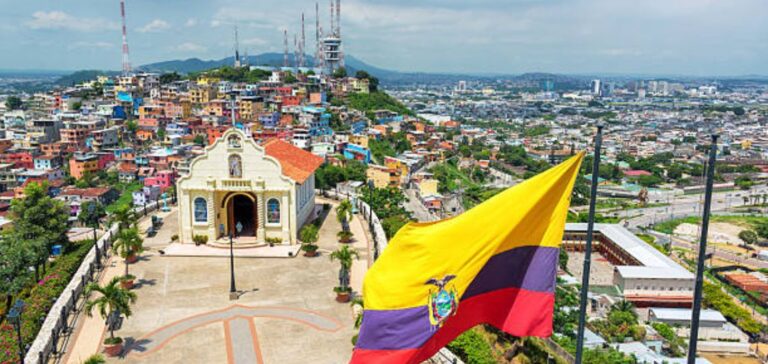Ecuador, where a state of emergency was declared on Thursday in the wake of the murder of one of the main presidential candidates, is a small oil-exporting Andean country plagued by drug trafficking.
Cocaine and Violence: Ecuador Faces a Security Crisis
Situated between Colombia and Peru, the world’s biggest cocaine producers, Ecuador has become a major center for the distribution of white powder to Europe and the United States. The country of 18 million inhabitants is experiencing the worst escalation of violence in its recent history. Drug-related crime has led to a near doubling of the homicide rate between 2021 and 2022, from 14 to 25 per 100,000 inhabitants. Deadly shootings have become frequent, mainly in Guayaquil, a major port in the south-west of the country.
Gang clashes have also led to repeated massacres in prisons, with over 420 inmates killed since February 2021. President Guillermo Lasso blamed “organized crime” after the murder of centrist Fernando Villavicencio, shot dead in Quito on August 9.
Ecuador: Indigenous Peoples Struggle for Territory
The 14 recognized indigenous “nationalities” are fighting to defend their ancestral territories threatened by oil and mining extraction. On August 20, at the same time as the first round of the presidential election, a referendum will be held on suspending oil production in the Yasuni nature reserve in northeastern Amazonia. However, the consultation is divisive, even within indigenous communities. Indigenous people represent 7% of the population according to the latest census, dating from 2010, and 25% according to their representatives, citing anthropological studies.
Indigenous peoples staged a historic uprising in 1990, as a result of which the government ceded 2.3 million hectares of land to the Amazon communities from which the oil is extracted. The powerful Confederation of Indigenous Nationalities (Conaie) also took part in the uprisings that toppled three presidents between 1997 and 2005. It spearheaded major protests in June 2022 against the rising cost of living, which left six people dead and forced the government to cut fuel prices.
Assange in Prison: Fight for Extradition
For seven years, from 2012 to 2019, WikiLeaks founder Julian Assange, who had published confidential documents on US military and diplomatic activities, took refuge in the Ecuadorian embassy in London. But the country withdrew diplomatic asylum after Lenin Moreno (2017-2021) came to power, closer to the United States than his predecessor Rafael Correa. Arrested by British police in April 2019, the Australian has since been held in a high-security prison near London, from where he has appealed an extradition order to the USA.
Ecuadorian Economy: Oil and Main Sectors
Oil production has been one of the mainstays of the Ecuadorian economy since the 1970s. Crude oil, the main export, generated revenues of $10 billion in 2022, around 10% of GDP. Other major exports include bananas (the world’s leading exporter), shrimps, cocoa and roses. In 2022, GDP growth was 2.9% according to the World Bank.
The Galapagos Islands: Ecuador’s Unique Treasure
Ecuador, bathed to the west by the Pacific, is one of South America’s smallest states, with a surface area of 256,370 km2. The Galapagos Islands, reputed to have inspired British naturalist Charles Darwin’s theory of the evolution of species in the 19th century, are classified by UNESCO as a World Heritage Site for their unique flora and fauna.
This volcanic archipelago, named after its giant tortoises, is one of the places most exposed to the climate crisis. Vulnerable species include marine iguanas, penguins, cormorants and sea lions. In May, Ecuador obtained a reduction of around $1 billion in its foreign debt, with a commitment to allocate $450 million to the protection of the Galapagos Islands.






















